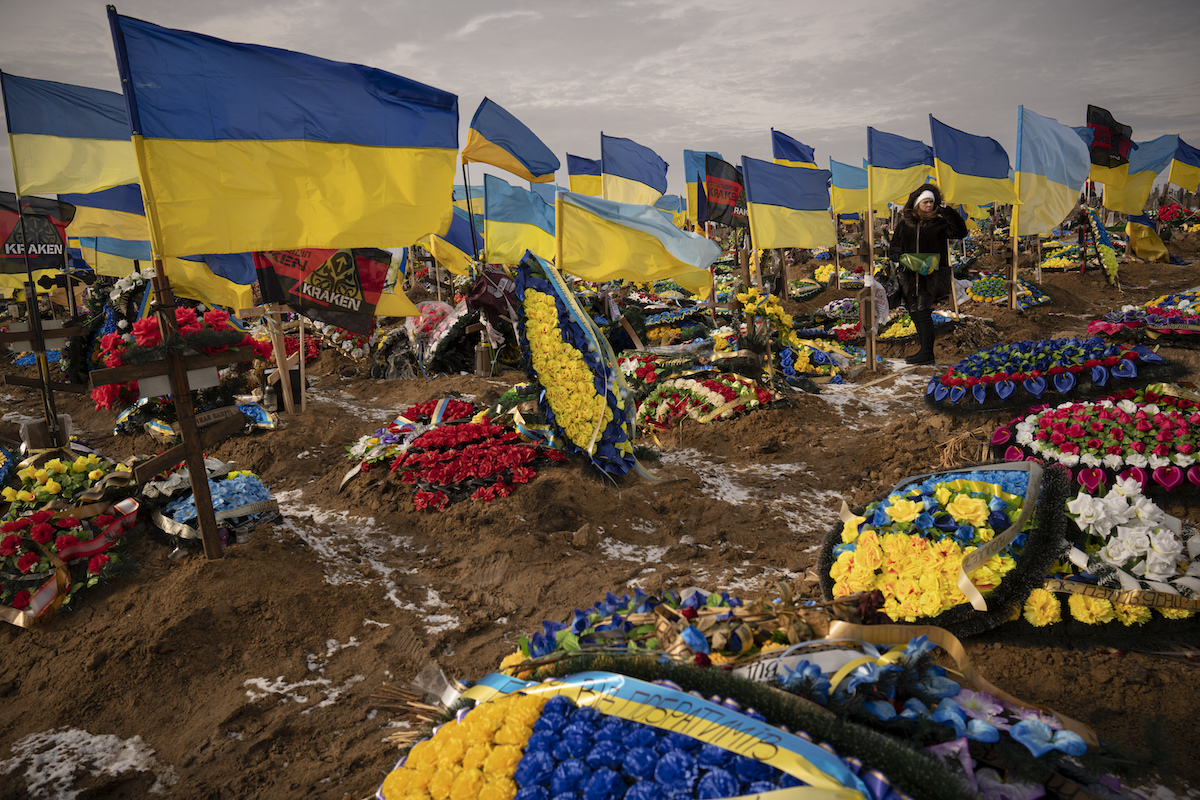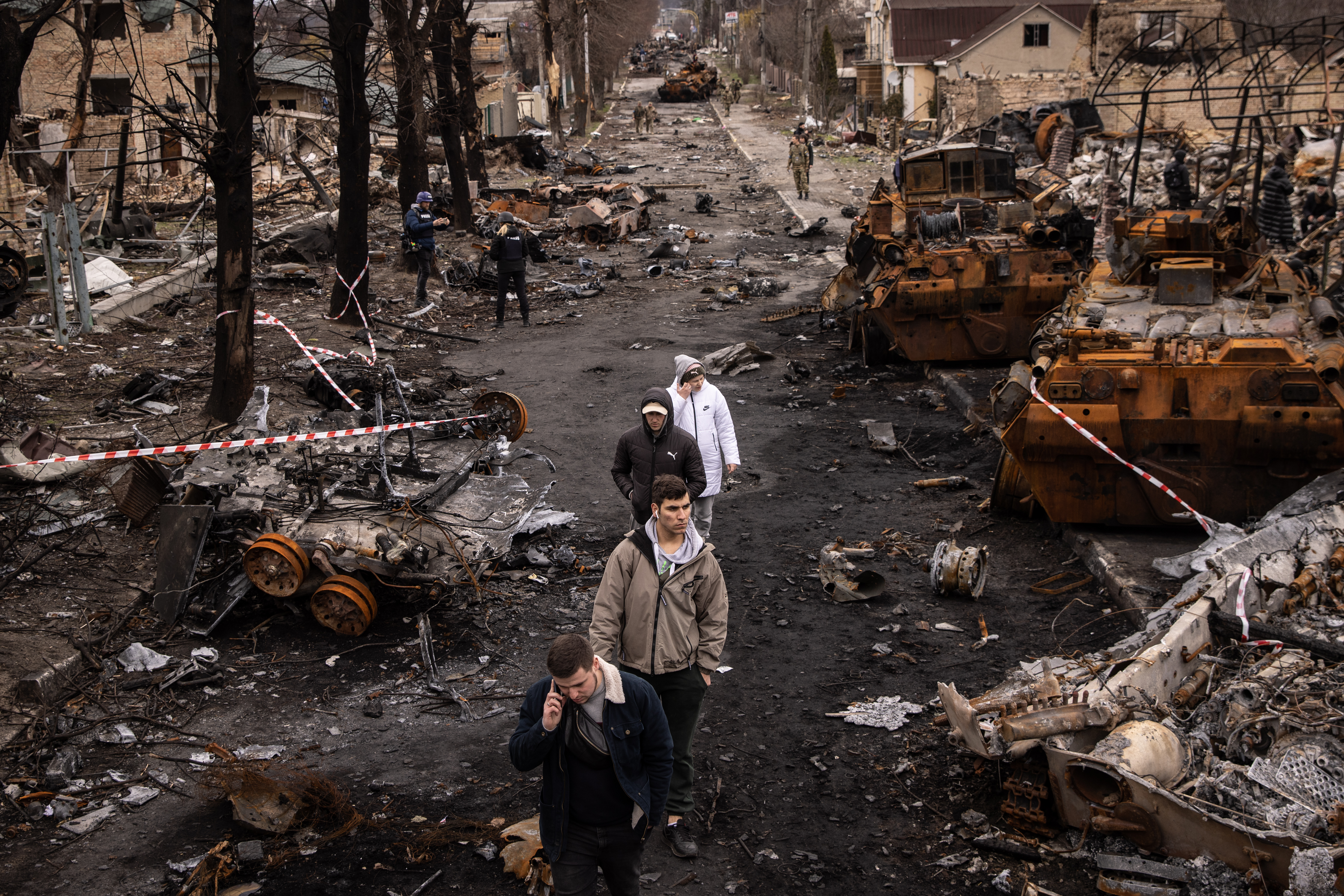Quantifying the toll of Russia's war in Ukraine remains an elusive goal a year into the conflict.
Estimates of the casualties, refugees and economic fallout from the war produce an incomplete picture of the deaths and suffering. Precise figures may never emerge for some of the categories international organizations are attempting to track.
Watch NBC6 free wherever you are
U.N. human rights experts count civilians killed and wounded, but know their tally falls significantly short. Neither Russia nor Ukraine has provided an updated accounting of their troop losses.
Even the scope of the weaponry that Western countries have sent Ukraine is murky.
Get local news you need to know to start your day with NBC 6's News Headlines newsletter.
Here’s a look at some of the numbers as Friday marks one year since Russian forces invaded Ukraine, with no end to the war in sight.
The Evolution of an Invasion
Roughly 5,000 missile strikes, 3,500 airstrikes and 1,000 drone strikes: Firepower that Russia has launched against Ukraine over the past year, according to Brig. Gen. Oleksiy Hromov, a senior official in the General Staff of the Ukrainian Armed Forces.
18: The percentage of total Ukrainian land controlled by Russian forces as of Thursday, according to the Institute for the Study of War, a think tank. That’s down from 27% on March 23, before Ukrainian counteroffensives recaptured vast swaths of land — but up from the 7% held by Russia and Russia-aligned separatists before Feb. 24, 2022, as part of an armed rebellion in eastern Ukraine that began in 2014, and Russia's annexation of Crimea that year.
71,905: Potential Russian war crimes — killings, kidnappings, indiscriminate bombings and sexual assaults — that are under investigation by Ukraine’s prosecutor-general. Reporting by The Associated Press and “Frontline,” recorded in a public database, has independently verified 639 incidents that appear to violate the laws of war.
The Casualties
8,006: Confirmed civilian deaths in Ukraine since Russia's invasion, through Feb. 15, according to the U.N. human rights office. The office uses strict methodology and says verification of thousands of reported casualties is still pending in Russian-occupied cities such as Mariupol, Lysychansk, and Sievierodonetsk.
3,382: Civilian deaths in Ukraine recorded by the U.N. rights office for March 2022, the highest number for a single month of the war.
13,287: Civilians injured in the conflict over the last year, according to the U.N.
5,937: Russia's most recent count, from September, of its troops killed in Ukraine since February 2022.
Around 200,000: Western Estimate of Russian troops killed and wounded. Britain’s Ministry of Defense has estimated 40,000-60,000 Russian troops have died fighting in Ukraine.
9,000 : Ukraine's most recent count, of its troops losses since the invasion provided in August by Gen. Valerii Zaluzhnyi, commander-in-chief of the Ukrainian armed forces.
More than 100,000: Estimate of Ukrainian troops killed or wounded, according to Western officials.
Refugees and Displaced People
8.1 million: Refugees who fled Ukraine after the Russian invasion, based on figures provided by national governments. The number includes more than 5.2 million in over 40 European and central Asian countries, including nearly 1.6 million in Poland, over 880,000 in Germany and nearly 2.9 million who went to Russia, according to U.N. refugee agency UNHCR.
5.4 million: People who were driven from their homes but stayed inside Ukraine, according to a Jan. 23 count by the International Organization for Migration. The number of internally displaced people peaked in early May 2022, when IOM reported there were more than 8 million.
5.6 million: Ukrainians who have returned to their homes, either from within Ukraine or abroad, according to the latest IOM figures.
17.6 million: People in Ukraine needing humanitarian aid, according to the U.N. Office for the Coordination of Humanitarian Affairs.
Economic Cost
$138 billion: The total damage caused to Ukraine’s infrastructure due to the war, according to the latest Kyiv School of Economics figure from Jan. 24.
33%: Minimum drop in Ukraine’s gross domestic product in 2022 expected by the International Monetary Fund. Final numbers are pending.
2.2%: Expected decline in Russia’s GDP in 2022, according to the IMF.
30%: Decline in the value of Ukrainian exports in 2022, as reported by the World Trade Organization
16% : Increase in the value of Russian exports in 2022, according to the WTO. It noted that the volume of Russian exports may have declined slightly, but the value was up because of price increases for fuels, fertilizers and cereals that Russia produces.
International Support for Ukraine
$113 billion: Emergency funding for the Ukraine response approved by U.S. Congress last year. Includes about $62 billion to be provided through the Defense Department, nearly half of it for weapons, training and other “direct security assistance,” and $46 billion through the State Department and U.S. Agency for International Development, according to the Pentagon and an inter-departmental report issued last month.
$78 billion: Total U.S. commitments made directly to Ukraine over most of last year and through Jan. 15, according to the Kiel Institute for the World Economy. The Germany-based institute says its figure excludes funds that were over-reported, have gone unused, or actually go to Ukraine's neighbors or to U.S. domestic programs. Its tally doesn't include more recent U.S. pledges to Ukraine, such as for 31 M1 Abrams tanks.
$59 billion (55 billion euros): Total commitments to Ukraine from European Union member nations and EU institutions, according to IFW Kiel.
$14 billion (13 billion euros): Pledges and allocations from non-country donors, including the International Monetary Fund, the World Bank and European Bank for Reconstruction and Development.
50%: Rough estimate by IFW-Kiel of aid disbursed as a percentage of commitments made by various donors.



